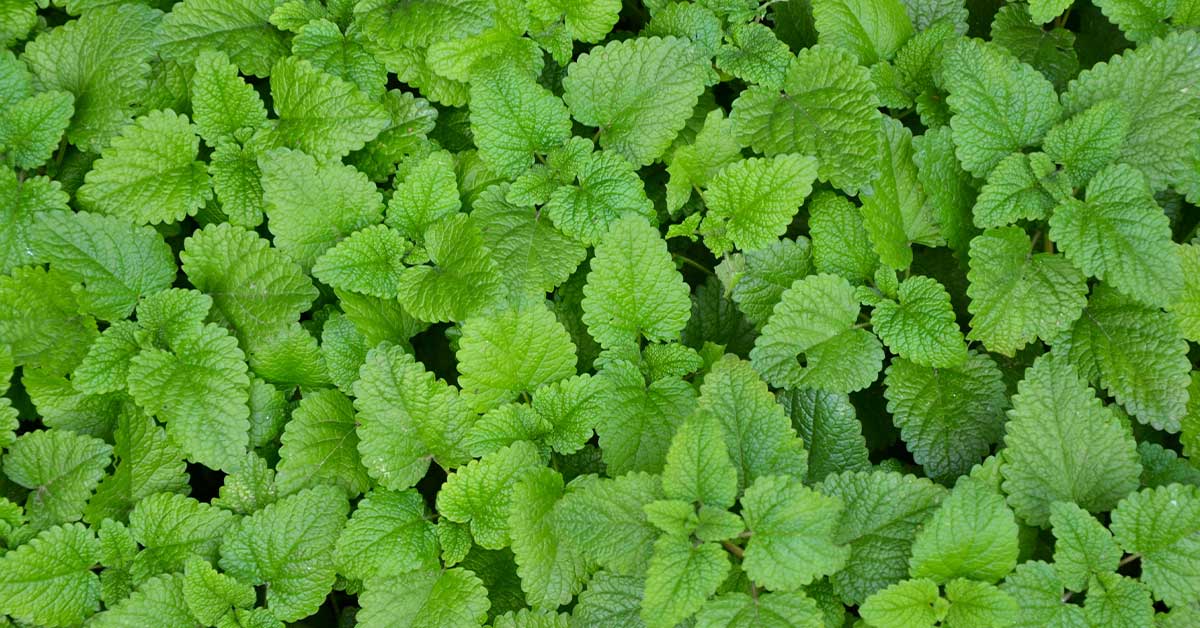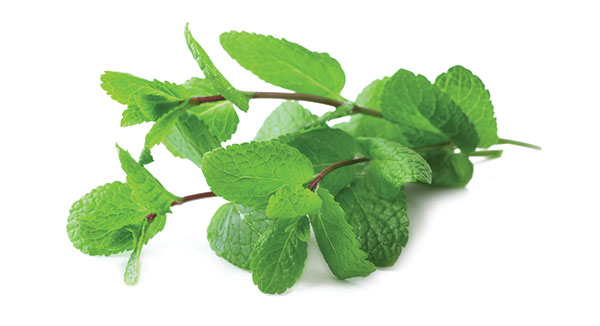





Lemon balm adds a sharp citrus flavor to teas and cakes, but this aromatic herb does more than taste good. It also has many health benefits, from brightening your mood to soothing stress. Learn more about this calming herb and enjoy all the health benefits of lemon balm.
Although they call it lemon balm, the herb actually comes from the mint family. So why the citrus association? It gets its name from it’s lemon-like aroma, which also makes it great for flavoring teas, lemonade, oils, vinegars, and baked goods. It’s also a key ingredient in French liqueurs like Benedictine and Chartreuse.
Originally, lemon balm (Melissa officinalis) comes from the Mediterranean. Because it grows easily and tolerates a range of conditions, today you can find it blossoming in all four corners of the world, from acroiss Europe to North America to Western Asia and Africa.

You can recognize the lemon balm plant by its bright green, serrated, oval-shaped leaves. It’s small white flowers bloom from June to September, depending on the geographic location.
For centuries, people have turned to lemon balm for its healing proporties. The Greek philosopher, Theophrastus, even mentions it in his Historia Plantarum, written in 300 BC. It gained popularity among herbalists in the Middle Ages, too. British royalty loved lemon balm for its calming and uplifting effects and grew it often in their gardens.
Lemon balm even won Herb of the Year in 2007 according to The International Herb Association. So what makes this herb so special? From brightening your mood to soothing stress, let’s learn more about the wonderful benefits of lemon balm for your brain and body.
The chartreuse color lemon balm stand out in any garden. The leaves of lemon balm don’t just look bright—they also brighten your mood! A study of 18 healthy volunteers reported feeling calmer and more alert after taking 600 mg doses of lemon balm for a week.
Many natural herbs support a healthy brain—and you can count lemon balm as one of them! A study found that supplementing with lemon balm as a water based drink improved working memory. In that same study, participants also reported better mathematical processing and alertness.
Feeling stressed out? A little lemon balm can help! The herb seems to reduce the effects of stress by increasing a state of calmness. Research connects lemon balm’s calming effects to plant chemicals found in its leaves called terpenes.
No one likes to toss and turn at night trying to fall asleep. So, if you struggle with getting quality rest, consider lemon balm supplements. A pilot trial showed that taking 600 mg of lemon balm per day improved sleep quality. Another study found that participants experiencing sleep problems noticed improvements when taking a combination of lemon balm with valerian, a perennial flowering plant native to Europe and Asia.
Want an easy, safe way to repel mosquitoes and gnats in the summer? Grow lemon balm in your garden. The plant wards off insects naturally. High levels of citronella give lemon balm that lovely citrus smell that we love… but bugs hate! You can even create your own bug spray by crushing fresh leaves and rubbing them directly onto the skin without having to spray harsh chemicals.
Lemon balm not only keeps bugs away. It also soothes mosquito bites and stings. Research shows that lemon balm has antihistamine effects to relieve itching and irritation caused by insect bites. Rub leaves directly onto a bite for instant relief—yet another reason to grow this healing herb in your garden!
Interested in including lemon balm into your wellness routine? Here are a few frequently asked questions to help you get starts and make the most out of this healthy herb.
Lemon balm comes in all kinds of forms. If you grow it in your garden, you can use the leaves directly on your skin. Lemon balm also tastes great to flavor teas, dressings, and baked goods. You can also get the benefits of lemon balm by supplementing.
It’s safe to apply directly to the skin, and homeopathic therapies and essential oils often contain lemon balm.
Studies show lemon balm has a range of benefits including:
Clinical studies show that it’s safe to take lemon balm supplements without any known side effects. When in doubt, check with your physician to make sure that lemon balm supplementation is right for you.
If you wish to supplement with lemon balm, adults can safely take between 15-600 mg of supplements daily to enjoy its benefits. To make lemon balm tea, add 1/4 to 1 tsp. of the dried herb to hot water and allow it to steep before drinking.
If you feel stressed, have trouble sleeping, or simply need a little mood boost, consider adding lemon balm to your health routine. This aromatic herb not only tastes citrusy and bright, it also brightens your mind and mood. Take it as a daily supplement or add it to any recipe for a citrusy punch. It’s an easy way to feel calm, alert, and sharp.
Take advantage of our hassle-free monthly auto-ship program to ensure that you never go a day without your favorite brain boosting NeuroQ formula. You can cancel your monthly auto-ship at any time.
As a member you can expect: